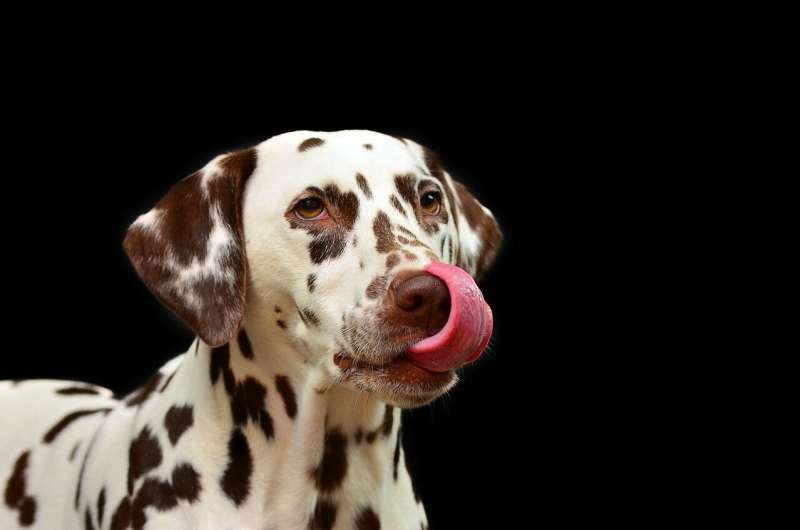Risk factors for heatstroke in UK dogs

Dogs that are older and heavier than their breed average or that have flat faces are at higher risk of heat-related illness, according to a study in Scientific Reports.
Emily Hall and colleagues investigated the incidence of heatstroke in dogs, using anonymized electronic records from 905,543 dogs under veterinary care in the UK in 2016, including 395 (0.04%) confirmed instances of heat-related illness, out of which 56 were fatal (fatality rate of 14.18%). Dogs with a bodyweight at or above the average for their breed had 1.42 times higher odds of heat-related illness than dogs with a bodyweight below the average for their breed. Regardless of the average weight for their breed, dogs weighing 50kg or more had 3.42 times higher odds than those weighing less than 10kg. Dogs aged six to eight years and those older than 12 years old had 1.53 and 1.75 times higher odds of heat-related illness respectively than dogs aged below two years.
Dogs with flat faces, such as pugs and French bulldogs, had 2.10 times higher odds than those with medium-length faces and purebred dogs had 1.86 times higher odds of heat-related illness than crossbred dogs.
The findings suggest the importance of maintaining a healthy bodyweight in dogs to limit the risk of heat-related illness. Breeding for good respiratory function should also be considered to limit the risk of heat-related illness in dogs, according to the authors.
More information: Incidence and risk factors for heat-related illness (heatstroke) in UK dogs under primary veterinary care in 2016, Scientific Reports (2020). DOI: 10.1038/s41598-020-66015-8
Journal information: Scientific Reports
Provided by Nature Publishing Group



















